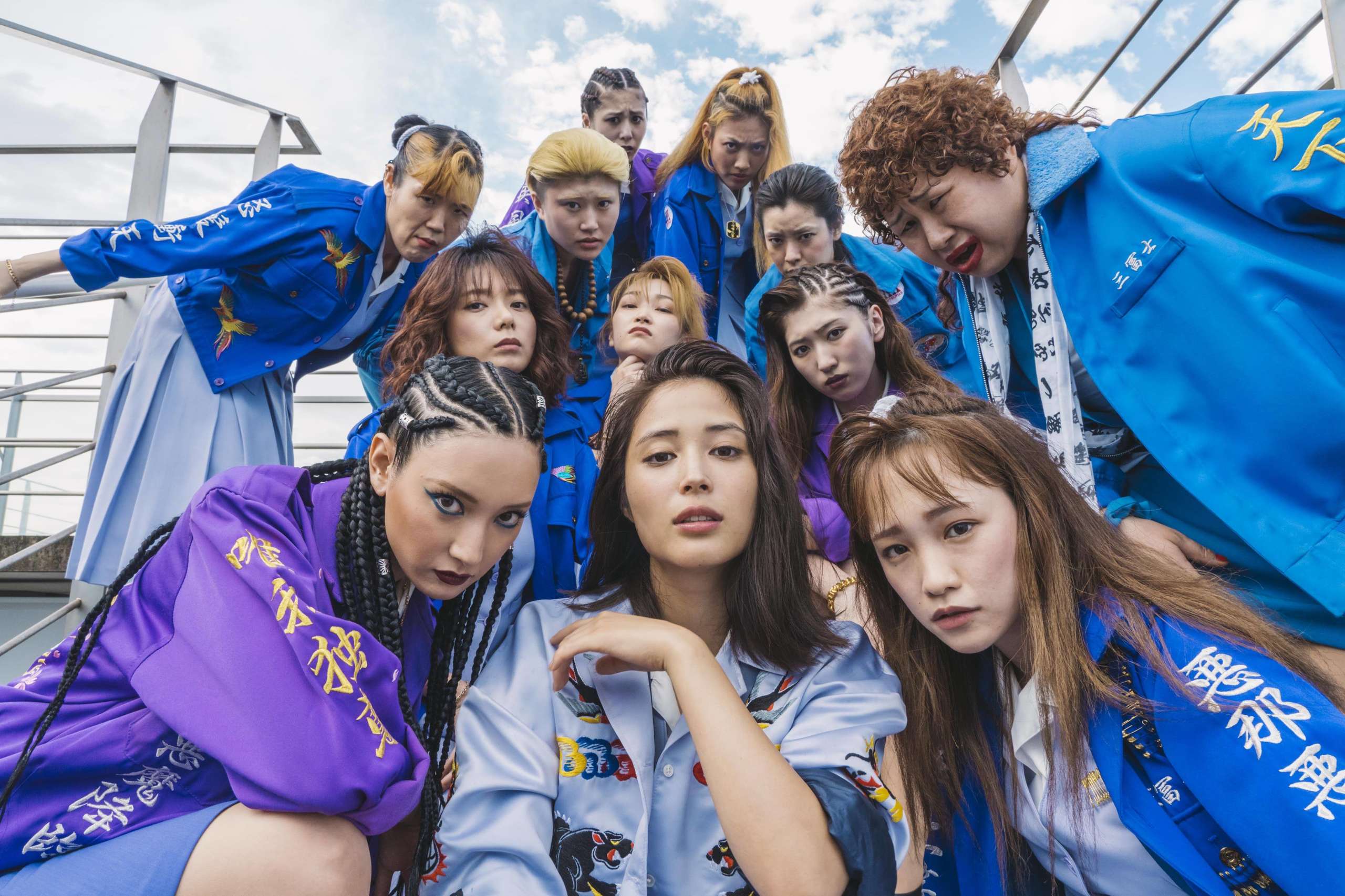
In the new action comedy Office Royale, director Kazuaki Seki teams up with screenwriter Bakarhythm to give a whole new meaning to office infighting as we’re introduced to an alternate universe where the fate of corporate Japan isn’t decided in metaphorical boardroom battles, but rather literal brawls among the support staff. While this blend of Working Girl and Scott Pilgrim vs The World doesn’t quite reach the potential of its premise, there’s still a lot of fun to be had.
The story follows Naoko (Mei Nagano), an “office lady” who keeps her head down and does her job all while observing the women-dominated factions of administrative staff who wage literal war with one another over the right to rule over the company. When newly hired Hôjô Ran (Alice Hirose) quickly establishes dominance by beating the living hell out of rival leaders, Naoko finds herself caught up in the action as she strikes up a friendship with Hôjô.
Naoko’s obsession with comics helps frame the story, giving it a very self-aware tone. As we meet various characters they’re introduced within the context of their role as various comic archetypes, and it’s fun to watch Naoko continually make these whimsical nods to comics as if she’s not living in one herself.
Now, director Kazuaki Seki isn’t working with Marvel-level budgets here, so he has to get creative with some of how the action plays out. In a lot of cases, for instance, the camera focuses on Naoko casually finishing lunch or texting on her phone while we hear the beating that Hôjô’s doling out to various challengers.

When the action does land on-screen, Seki and crew appear to be having a grand old time playing with bold set pieces that they don’t quite have the moolah to pull off seamlessly. The choreography isn’t stellar and the CGI is a bit wonky, but that’s all part of the fun in a movie that seems to be taking the piss out of comic book films even as it’s presenting itself as one.
At its core this is a satire, and the way it toys with comic book structure to subvert expectations is quite effective. Much like in comic books, it seems like there is always another big bad waiting behind the last one. Just as we think we’ve reached the climactic confrontation in the film we find another layer peeled away, and in the third act the film’s focus bounces around in really creative ways that explore working friendships in a corporate structure.
I’m certainly no expert in Japanese media, but from what I’ve seen there’s a keen interest in social hierarchy (see: Battle Royale). Here, that’s combined with a pretty funny critique on women’s role in the corporate workplace. The men of Office Royale are utterly inconsequential as they pop in and out of scenes, either blissfully unaware of the epic, operatic battles being fought in their very own offices or disregarding their importance given that these are just “office ladies.”

But alas, although women dominate the world in front of the camera, the fact that the creative team behind the film are men leaves something lacking. The biggest misstep comes with the introduction of Ryoko Akagi, the head office lady of a rival company and one of the toughest opponents of the movie. And how do we show how dangerous and off-putting Ryoko and her lieutenants are? Why, we have them played by men, of course! It’s really such a bummer that Seki leans into such a tired trope, especially considering the character Ryoko is a lot of fun as a menacing diva. But to think that there’s not a large, well-built woman who could have pulled off that role is simply folly.
Ultimately, the bad taste left in my mouth from Ryoko’s casting left me wondering what kind of film Office Royale could have been with a woman behind the camera, which of course continues to be an all-too-common question. But Office Royale still has something to offer in its slick, playful tone, silly action sequences, and strong performances from leads Nagano and Ran. These are some administrative staff that can administer one hell of an ass stomping.




